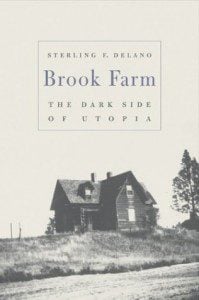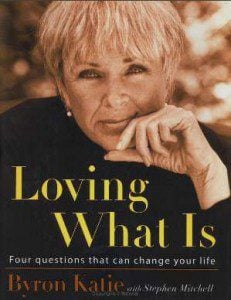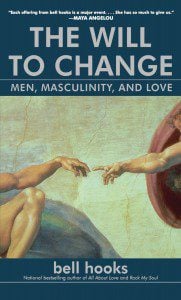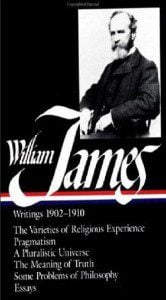Note: This post is the final installment in our six-part study of the ancient Christian document the Didache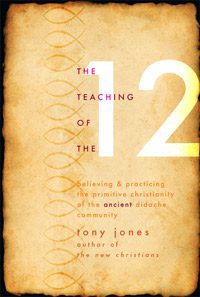 (50-70 C.E., pronounced “DID-ah-KAY). For previous installments in this series, see the links at the end.
(50-70 C.E., pronounced “DID-ah-KAY). For previous installments in this series, see the links at the end.
Appoint bishops for yourselves, as well as deacons, worthy of the Lord, of meek disposition, unattached to money, truthful and proven; for they also render to you the service of prophets and teachers.
Didache 15:1
Whom should we ordain? And why?
To begin to respond to these questions, I invite you to remember any clergy ordinations you have witnessed. How many times have you seen someone ordained as a pastor or priest?
I suspect that such an event is rare in your experience. Some of you, who have been regular church attenders your whole lives, may still have never witnessed an ordination. I invite you to think with me about why this state of affairs may be problematic for many reasons, perhaps most glaringly as a contradiction of many Protestant churches’ stated or traditional belief in the “priesthood of all believers.”
In the Southern Baptist church in which I was raised, I never saw a clergy ordination. One white male was the senior pastor of the congregation for my entire childhood. And he had been ordained years before I was born. The only other ordained person I can recall ascending to the pulpit on even a semi-regular basis was the associate paster, another white male, who had been ordained at a previous congregation before I was born.
The primary exception that I can think of is that once a year a few graduating high school seniors were selected to collectively preach a sermon on Youth Sunday: generally 3-5 minutes each on a particular theme or set of scriptures. From the best of my recollection, I do not remember a female being selected to preach for Youth Sunday, but I will confess that a female being selected to deliver a sermon would have likely been much more memorable for the young women of the church than for me. As a white male myself, I took it for granted that I had the right to preach a sermon if I felt called to do so because the model of white men preaching was essentially all I had ever known.
In preparing for this sermon, one of my childhood friends, who along with me was one of the four young men selected in our year to preach on Youth Sunday, reminded me that one of our female classmates was angry about being excluded from preaching on Youth Sunday. Ironically, she was one of the three of us from our graduating class, who eventually went to seminary and was later ordained. The fact that I had forgotten about her exclusion is further testament to the dominant paradigm in Southern Baptist life of only a “few good men” being called to preach.
Now allow me to offer some counterexamples. I rarely remember the subject of women’s ordination being raised in seminary. It would’ve been mostly a moot argument since approximately half of my seminary class were women seeking ordination. There were also many ordained female professors. But I do remember once when the argument came up that my seminary roommate, who had been raised in the Christian Church (Disciples of Christ), said, “Of course I’ve always supported women’s ordination. The primary pastor that I knew at my childhood church was a woman.” Similarly, as I grew up and as was exposed to increasing numbers of women who were charismatic leaders, compassionate pastoral caregivers, and talented preachers, I found that I had a new response to people who asked me if I believed in women’s ordination. I started saying incredulously, “Do I believe in women’s ordination? Of course I believe in it. I’ve seen it!”
Part of my point is to satirize the whole situation of asking if someone ‘believes’ in women’s ordination in the same way that you would ask if someone believe in fairies or unicorns. What is more important is to expose that the question of women’s ordination is not an abstract, theoretical debate. The way we talk about women’s ordination and whether the churches of which we are a part ordain women is deeply impactful on the way that approximately 50% of the world’s population thinks about God. In other words, by discouraging women or by failing to model female religious leadership, you are potentially part of blocking young women from hearing God’s call.
Remember those words preached at Pentecost when the early church was born. I’ll quote from Acts 2 in the King James Version as a reminder of those many significant places in the Books of Acts in which men and women are explicitly mentioned in the original Greek text, not merely in contemporary inclusive versions. The apostle Peter, whom tradition tells us was the first pope, stood up — inspired by the Spirit — and preached from the Book of Joel: “And it shall come to pass in the last days, saith God, I will pour out of my Spirit upon all flesh: and your sons and your daughters shall prophesy, and your young men shall see visions, and your old men shall dream dreams.”
Moving from the beginning of the church to the beginning of the Bible, we read, “God created humankind in God’s own image, in the image of God they were created; male and female, God created them.” Notice that the very first chapter of the book of Genesis affirms that the image of God is found in both males and females. Thus, to refuse to see God in the female body is to refuse to see at least a half of what God is trying to show us through human history. We could trace many other instances of women’s leadership in the Bible and in the Christian tradition, but the more important point is that the struggle to make women’s ordination regular, normal, and commonplace was hard fought and is not over.
Whenever I reflect on the struggle for equal rights historically, I am regularly dumbfounded that here in the year 2012 — well into the 21st-century and Christianity’s third millennium — we still have not year reached the 100th anniversary of women’s voting rights in the U.S., which came only in 1920 with the 19th Amendment to the Constitution. We’ve come a long way as a species, but still have a long way to go. I’m reminded of a piece of wisdom from my seminary mentor who used to say about injustice: “Remember: It doesn’t have to be this way.” What he meant was that the first step of living into a better world was realizing that we don’t have to be complacent about the status quo, and we can begin with imagining a different way. As St. Augustine famously said, “Hope has two beautiful daughters: anger and courage. Anger that things are the way they are. Courage to make them the way they ought to be.”
~~~~~~~~
Speaking of the contrast between the way things are as opposed to the way things ought to be, I was ordained on July 6, 2003. But I’ve already alluded to the fact that part of me doesn’t believe in ordination. That part of me believes in the priesthood of all believers: that if you are baptized, then you are just as much of a pastor and priest as I am or as anyone else is. This perspective is a vision of the church as a democracy, a congregation of equals, all different parts of the one body of Christ. This flattened, horizontal view was reaffirmed by many in the Reformation, when individuals and groups began to protest the topdown, hierarchal control of Rome.
However, this egalitarian vision is rooted much earlier. As Paul wrote to the Galatians: “There is no longer Jew or Greek, there is no longer slave or free, there is no longer male and female; for all of you are one in Christ Jesus” (3:28). But this promise of a priesthood of all believers has not yet been fulfilled. One of my mentors, a longtime pastor, has written that,
Ordination sets up a ministry class system: first class, clergy; second class, laity. For all our intentions otherwise, a two-tiered system is created. The difference in gifts for ministry becomes unfortunately a difference in value. As Baptists, even Protestants, our formal theology declares, “the priesthood (ministry) of all believers”; our functional theology declares, “priesthood (ministry) of others.”
In other words, the ordination of clergy can mask and unintentionally subvert the equally important call to ministry of all Christians to take part in bringing about the kingdom of God and building the Beloved Community. Another theologian similarly invites us to consider that the answer to this dilemma is not to criticize the professional class of clergy or even to ban ordinations. Instead, he makes the much more radical suggestion that we should abolish the laity if we want to authentically live into the vision of “every member a minister” — fully enfranchised and fully empowered!
~~~~~~~~
We can see some justification for this perspective in our reading for this morning. Didache 15:1 says, “Appoint bishops for yourselves, as well as deacons, worthy of the Lord, of meek disposition, unattached to money, truthful and proven; for they also render to you the service of prophets and teachers.” When you read this verse, it is important to note that the word “bishops” is plural. The Greek word here episcopous is a secular term that means “overseer.” Similarly, the Greek diakonia, which we transliterate as “deacon,” is a secular term meaning “servant.” There is no connotation in the mid-first century of all the hierarchal and ecclesial baggage that will be woven into these terms over time.
In these early decades after the life and ministry of Jesus, the call for “bishops and deacons” is merely about finding those members of the community willing to serve as “overseers and servants.” There is no talk of lifetime appointments, ontological change, or special garments — much less one single bishop over multiple communities or the whole Church. Instead the Didache seems to envision multiple bishops or “overseers” in each community.
As we enter into a time of contemplative silence, I leave you with the question with which we began:
Whom should we ordain? And why?
For Further Study on the Didache
- Aaron Milavec’s The Didache: Text, Translation, Analysis, and Commentary is an accessible, condensed version of his massive tome The Didache: Faith, Hope, and Life of the Earliest Christian Communities, 50-70 C.E.
- Tony Jones’ The Teaching of the Twelve: Believing & Practicing the Primitive Christianity of the Ancient Didache Community is another accessible entry point. And there is a supplemental DVD.
- Thomas O’Loughlin, The Didache: A Window on the Earliest Christians.
- Read the text of the Didache for yourself free online at http://www.paracletepress.com/didache.html.
Previous Sermons in this Series
- Preaching the Didache: What Is Your Canon and Why? (Didache 1).
- The Pragmatism of the Didache: At Least Do What You Can (Didache 2-6).
- Is Baptism Overrated? (Didache 7)
- Eucharist Like You’ve Never Heard It Before (Didache 9-10)
- Christ-peddlers: If God Is Still Speaking, How Do You Know If Someone Is Authentically Speaking for God? (Didache 11-13)
Notes
1 Regarding the ordination theme of this sermon, Tony Jones makes an important point that is another reason the Didache may have waned in popularity and been disregarded for canonization: self-interested clergy were disinclined to promote it: “…the Didache contains no mention of clergy or priesthood, nor does it grant bishops ecclesiastical authority, so it wouldn’t have been a very popular book for the burgeoning church hierarchy in the fourth and fifth centuries” (9).
2 “men and women are explicitly mentioned in the original Greek text” — New Testament scholar Larry Hurtado highlights that, in the Acts of the Apostles:
- 5:14. Both men and women became believers in response to apostolic preaching and attendant “signs and wonders”.
- 8:12. Likewise, in response to Philip’s preaching, “men and women” were baptized.
- 8:3; 9:2; 22:4. In all these references to persecution of believers by Saul/Paul, the author mentions “men and women” as victims.
For more, see Allen Black, “‘Your sons and Your Daughters Will Prophesy . . .’: Pairings of Men and Women in Luke-Acts,” in Scripture and Traditions: Essays on Early Judaism and Christianity in Honor of Carl R. Holladay, ed. Patrick Gray & Gail R. O’Day (Leiden: Brill, 2008), 193-206. Hurtado notes that: “Black shows that the author of Luke-Acts was likely prompted by passages in Isaiah (e.g., 43:6-7; 49:22; 60:4) where Israel is promised that her ‘sons and daughters’ will be recipients of future divine blessings. So, convinced that early Christianity is the fulfillment of these hopes, the author of Acts underscores the sexual duality of early Christian circles.”
3 “many of instances of women’s leadership in the Bible and in the Christian tradition” — see, for example, my sermon on “Paul: Misogynist or Mystic?” (http://www.patheos.com/blogs/carlgregg/2012/02/paul-misogynist-or-mystic/).
4 Walter Shurden’s book The Baptist Identity: Four Fragile Freedoms identifies four essential Baptist freedoms: Religious Freedom, Bible Freedom, Church Freedom, and Soul Freedom. Religious Freedom is the freedom of individual religion expression as also protected in the free exercise clause in the First Amendment of the Constitution. Bible Freedom is the freedom of any individual to interpret the Bible for him or herself as she or he sees fit. Church Freedom is the freedom of a local congregation to govern itself without the interference of any other congregation, denomination, bishop, or other supervisory body. And finally Soul Freedom is the responsibility of each individual to work out his or her theology for him or herself. Taken together, these Baptist freedoms are what allow such a wide diversity of people from the modern day saint and martyr Martin Luther King, Jr. to the hateful and divisive Fred Phelps to all authentically claim the name Baptist.
5 “Ordination sets up a ministry class system” — Mahan Siler, Letters to Nancy: Reflections on Pastoral Ministry (Wipf and Stock: 2001), 59-60. Siler’s book is a beautiful collection of letters written to his former associate pastor and eventual successor Nancy Petty. The volume is unfortunately out of print, but I highly recommend picking up a used copy if you ever come across one. In the meantime, another excellent book, which includes a reference to the passage from Siler I quoted is Stephen Sprinkle, Ordination: Celebrating the Gift of Ministry, 17-18
6 “abolish the laity” — see James William McClendon, Systematic Theology, Vol. 2: Doctrine, 368-369.
The Rev. Carl Gregg is a trained spiritual director, a D.Min. candidate at San Francisco Theological Seminary, and the pastor of Broadview Church in Chesapeake Beach, Maryland. Follow him on Facebook (facebook.com/carlgregg) and Twitter (@carlgregg).







